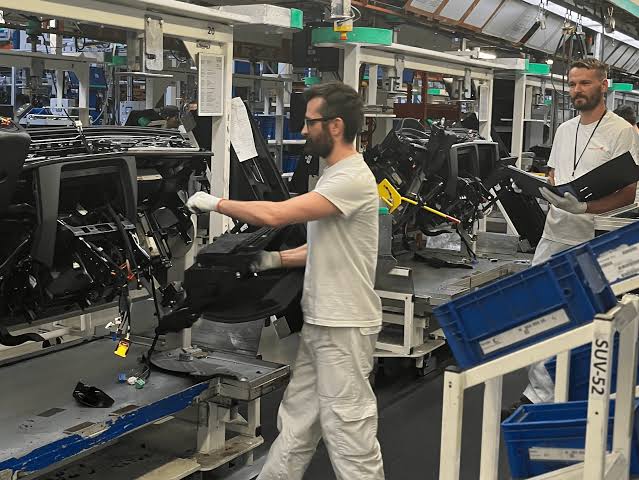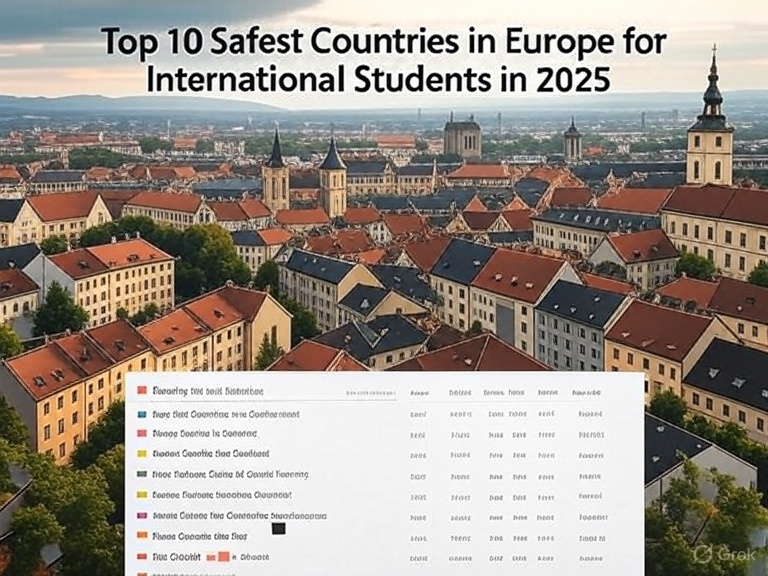If you’re thinking of changing careers and your eyes have landed on Artificial Intelligence (AI), you’re on the right page. A lot of people from different backgrounds like marketing, finance, engineering, healthcare, even teaching are slowly making their way into AI. Why? Because it’s the future. Europe, in particular, is busy with opportunities. A look from Germany to the Netherlands, France to Sweden, AI is being used in everything from healthcare to banking, self-driving cars to personalized learning.
The beautiful thing about transitioning to AI is that you don’t always need to start from scratch. You don’t need to be some coding genius or math wizard. In fact, a lot of skills you already have can be very useful in AI.
Are you a data nerd, a creative mind, a good communicator, or someone who likes solving problems? Then there’s a place for you in the world of AI.
In this article, I’ll break down why switching to AI is worth it, how you can do it step-by-step, and I’ll answer some common questions too. It’s all written in simple, casual language. No much talk. Just real life advice for real people like you.
Why You Should Switch Your Career to AI
Let’s be honest, AI is changing the world. It’s already shaping how we live, shop, work, and even think. Think about how YouTube recommends videos, how your bank flags suspicious transactions, or how voice assistants like Siri understand what you’re saying. That’s all AI in action.
But beyond the cool tech, here’s the real deal: AI careers pay well, they’re in high demand, and they’re not going anywhere anytime soon. With everything becoming more digital, companies need smart people who can work with data, train machines, or help design systems that can make decisions on their own.
Also, Europe is taking AI seriously. The EU is pumping billions of euros into AI research and development. Countries like Germany, France, the UK, and Sweden are creating AI hubs and centers of excellence. That means more job openings, more startup innovation, and more chances for people like you to find your place.
It might be that you’re chasing a higher salary, job security, remote work flexibility, or just something more exciting than your current role. Then I will guarantee you that AI could be your golden ticket.
How to Transition to a Career in AI in Europe
Let’s go step by step so it doesn’t feel overwhelming.
Step 1: Understand What Area of AI Interests You
AI is a big world. You don’t have to do everything. You can pick a lane. For example:
- Machine Learning (teaching machines to learn from data)
- Data Science (analyzing data to find insights)
- Natural Language Processing (working with text and speech)
- Computer Vision (helping machines “see” with images and videos)
- AI Ethics and Policy (for non-technical folks)
Take some time to research each one and figure out what clicks with your interest and background.
Step 2: Build Some Basic Knowledge
You don’t need a PhD. Start small. Learn the basics of Python (the most common programming language in AI), statistics, and data analysis.
Websites like Coursera, edX, and Udacity offer beginner-friendly courses. Many are free or super affordable. Some universities in Europe even provide online AI courses in English.
Start with one course at a time. Even dedicating 1 hour a day is enough to see real progress.
Step 3: Work on Mini Projects
Once you know the basics, start building small projects. For example:
- Predicting stock prices
- Classifying images of cats and dogs
- Analyzing tweets to detect sentiment
Don’t worry if they’re not perfect. The point is to learn and show that you can apply what you’ve learned. Upload your projects on GitHub. It’s like your online resume for tech.
Step 4: Leverage Your Existing Skills
Maybe you’ve worked in finance. You could look into AI in financial modeling. If you’re from a healthcare background, AI in medical diagnosis or patient data analysis is a great fit.
You don’t have to leave your industry completely. Instead, combine your old skills with your new AI knowledge. That’s where the magic happens.
Step 5: Get Certified
Certifications can boost your confidence and resume. Some popular ones:
- IBM AI Engineering on Coursera
- Deep Learning Specialization by Andrew Ng
- Microsoft Azure AI Fundamentals
- Google’s Machine Learning Crash Course
You don’t need all of them. Just pick one that aligns with your goals.
Step 6: Network Like a Pro
Join AI communities in Europe. LinkedIn groups, Reddit forums, and even local meetups (like PyData, AI Saturdays, or Data Science Berlin) can connect you with people in the field.
You’ll learn more from conversations than any textbook.
Step 7: Apply for Internships or Entry-Level Roles
Once you feel a bit confident, start applying. Look for:
- AI Internships
- Junior Machine Learning Roles
- Research Assistant Positions
- Freelance AI projects
Even if the pay isn’t good at the start, the experience is priceless. Many people start this way and quickly move up once they prove themselves.
Step 8: Consider Relocation or Remote Options
Europe is open to skilled workers, especially in tech. Countries like Germany, the Netherlands, and Estonia offer visa programs for tech professionals.
Remote roles are also booming. Companies are hiring talent from all over the world. So even if you’re not in Europe yet, you can still land a job there remotely.
Frequently Asked Questions
Below are answers to some commonly asked questions regarding how to transition to a career in tech in the continent.
Which European country is best for AI?
Germany and the Netherlands are leading the AI game. Germany has a strong focus on AI in manufacturing and automotive industries. The Netherlands is huge in AI startups and innovation. France and the UK are also very active, especially in AI research.
How do I transition my career to AI?
Start by learning the basics of programming (Python is a good start), brush up on statistics, take a few online courses, work on simple projects, and slowly build your portfolio. Use your current knowledge to branch into AI fields where your background is useful.
How do I start my career in AI?
You can start by learning online, joining AI communities, and working on hands-on projects. Then, apply for internships or entry-level roles—even freelance gigs help. Build your experience and gradually move up.
What is the salary of an AI engineer?
In Europe, AI engineers can earn anywhere between €45,000 to over €100,000 per year, depending on experience and country. In Germany or the Netherlands, a junior AI engineer might earn around €50,000, while experienced ones can make €90k or more.
Which country in the world is best for AI jobs?
The United States is still leading globally in AI opportunities, but in Europe, Germany, the UK, and the Netherlands are excellent choices. They have good pay, strong tech ecosystems, and friendly immigration policies for skilled workers.
Final Takeaway
Switching to a career in AI in Europe isn’t just a mere dream – it’s actually very possibly. You don’t need to go back to school for five years or give up everything you’ve worked for. With the right mindset, a bit of time every day, and consistent learning, you can make the shift. All you have to do is to start small, stay curious, and surround yourself with people already doing what you want to do.
Remember, there’s no “perfect” time to start. The best time is now. The AI train is already here and it’s waiting for people like you to ride it.
We wish you all the best!






